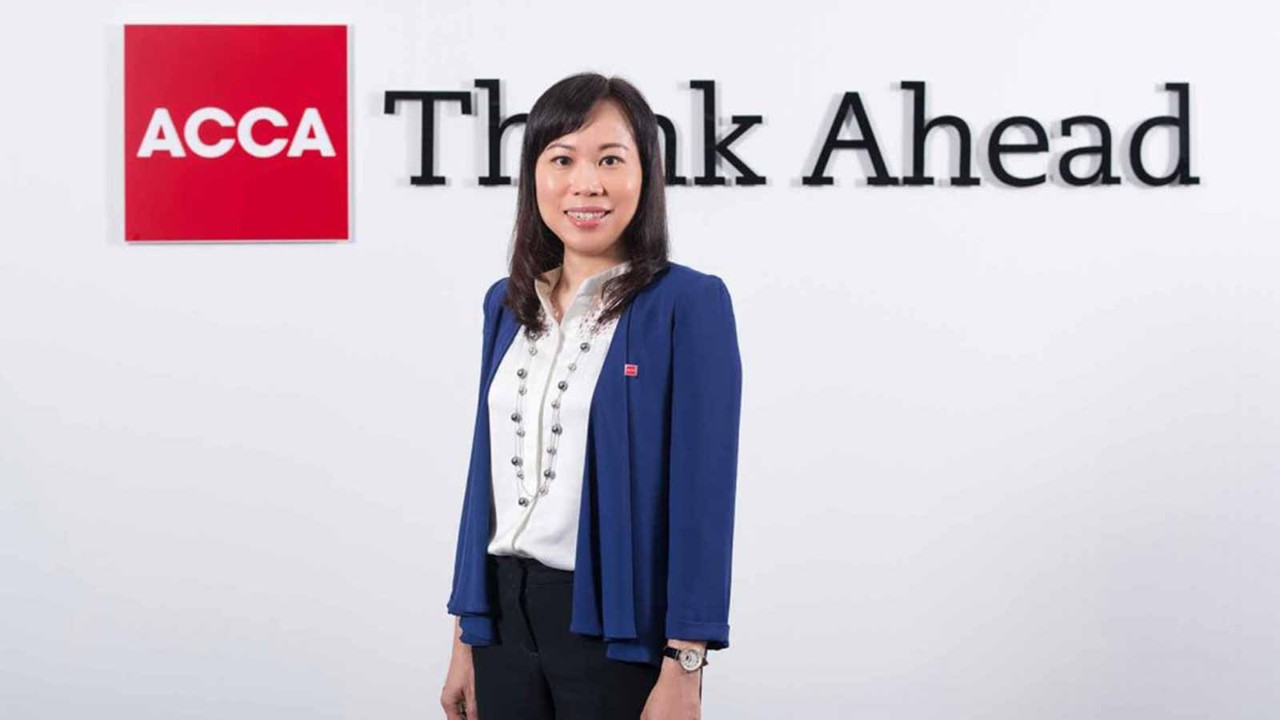
With its geographical proximity to mainland China, Hong Kong SAR plays a significant role in M&A, IPO and fundraising activities. Its status as an international financial hub, along with an abundance of talent and resources help many companies, says Winnie Ki, the new chairman of ACCA Hong Kong.
‘Hong Kong has a well-established capital market infrastructure with stable legal, regulatory and tax systems, free flow of capital and a rich talent pool in professional services. Therefore, international investors and institutional investors have faith in this city,’ says Ki, who is also a partner at EY with over 25 years of professional experience.
She adds that, in the future, opportunities for companies and finance professionals lie in areas such as digital transformation. ‘Digital transformation also provides massive opportunities for finance professionals. Incentives in the Guangdong-Hong Kong-Macau Greater Bay Area (GBA), current global trade tensions and infractions also raise demand for finance professionals,’ says Ki.
I hope to connect members and create more opportunities for networking and professional development, especially in the post-pandemic era
To improve the skillsets of finance professionals and help them navigate these challenges, Ki will focus on connecting members and adding value to their membership during her term as ACCA Hong Kong chairman.
‘I hope to connect members and create more opportunities for networking and professional development, especially in the post-pandemic era,’ says Ki.
Another focus will be to continually increase the employability of members and student members.
‘We aim to enrich our members’ knowledge so as to enhance their abilities at work,’ she says. ACCA Hong Kong has already started a taskforce focused on young members in particular.
‘We hope to empower our younger members and hear their voices because they are the pillars of Hong Kong’s future. We should support their growth and provide more opportunities for them,’ Ki says.
During her term, Ki also hopes to foster connections with stakeholders such as government bodies, regulators and employer partners to share ideas, identify opportunities, and unlock growth.
Data matters
Ki has seen some changes in the industry. For example, companies have accelerated the pace of their digital transformation because of the pandemic.
‘Companies believe digital transformation has increased their value and driven the mission of their businesses. Leaders use digital initiatives to foster enterprise resilience amid macroeconomic changes.
‘Leaders have to also manage a mindset shift and change the way their teams are working. Investors are also convinced that those companies become more resilient and can manage long-term risks,’ Ki adds.
Professionals should shift their focus to analytical work as automation and artificial intelligence (AI) can take care of more repetitive tasks.
‘Finance professionals should tap into their knowledge to analyse the data and generate values for companies. Finance professionals of the future need to be technological savvy to evolve with the changing world, and they need to be familiar with data visualisation strategies to translate data into insights to support business growth,’ Ki says.
Heeding feedback
In addition, companies should also listen to the feedback from finance professionals for collaborating with different departments to design and implement new systems. They should be the enablers of a smooth and efficient digital transformation.
‘Link the relevant data to the customers’ needs and preferences and drive them to buy the products. This is what we can do,’ says Ki. Besides big conglomerates, Ki believes small and medium enterprises (SMEs) also have a need for digitalisation.
‘Digital is no longer a channel, it’s a way of doing business. SMEs can capture opportunities to re-engineer their businesses by leveraging external digital platforms for sales and marketing, and enhancing internal operational efficiency to reduce costs,’ says Ki. Meanwhile, the government has provided various incentives and support to help SMEs with digital transformation.
ACCA resources
ACCA has also provided numerous digital courses for the further development of its members, offering them a chance to enhance their skills, such as how to analyse data for better decision making.
During her term, Ki intends to enhance services for aspiring finance professionals in the area of digitalisation.
Being an alumnus of the Hong Kong Polytechnic University (PolyU), Ki is a member of the advisory board at the institution and provides advice on course design offered to university students, which includes data analytics.
She has been a mentor sharing experience with students at PolyU for over 15 years. ‘I look forward to sharing more with university students on their future careers and how the industry is going to evolve, and to help students better equip themselves,’ Ki says.
There is increased regulatory requirements and investors' demand for companies to provide reliable ESG reporting and disclosures
ESG in focus
With environmental, social and governance (ESG) remaining another market focus, ‘there is increased regulatory requirements and investors' demand for companies to provide reliable ESG reporting and disclosures’, Ki says.
‘I expect the regulations and disclosure requirements to be more stringent in the future. Authorities and standards board such as the US Securities and Exchange Commission are trying to set higher standards on sustainability reporting,’ she says. ‘Telling the public how a company is managing climate change and protecting the environment could promote its reputation and image too.’
She observes that companies have recognised the value of ESG as it reflects their focus on sustainability and risk management profile.
More transparent reporting can also help companies find suitable investors. A better ESG rating will increase the enterprise value of companies, she adds.
‘There is an increasing trend for institutional investors to look for non-financial performance in investment decision-making. When investors have green funds on hand and need to pick the right companies to invest in, they are more likely to consider companies with a higher ESG performance rating,’ Ki says.
In addition, reducing carbon emissions could also save costs for companies.
Much as with digital transformation, Ki mentions that ‘in-house finance professionals could bring value to companies by establishing and overseeing a strong system of internal controls for ESG data collection, as well as analysing relevant data for timely reporting and decision making.
‘Most importantly, finance professionals could analyse the data and present the key information to either investors or stakeholders,’ she says. She adds that they could also use the data to transform the company’s mission and point it in the right direction.
'With increasing trends on mandatory disclosures of sustainability-related information, professionals at practicing firms can also provide services to companies and stakeholders advising on the ESG-related topics to align financial and non-financial reporting to ensure the information which companies provide is correct, consistent, and comparable.’
Diversity creates harmony
After leading the Working Parents Network, a Diversity and Inclusiveness group at EY Hong Kong, for many years, Ki believes that people are always the priority in every company.
‘The most valuable resources are people. When people feel included and respected, they will work happily at companies. A sense of solidarity among colleagues will grow and their productivity will also increase,’ she says.
At a large global organisation like EY, Ki says the staff come from diverse backgrounds. What she wants to bring to these employees is a sense of ‘self-belonging’, and offer a supportive environment and opportunities for them to grow and shine.
It is the same goal she has for her tenure as the new chair of ACCA Hong Kong.




